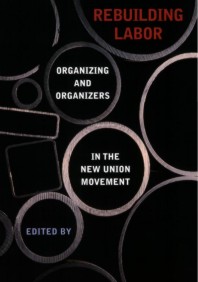
Berkeley’s Sociology Department is known around the world for its excellence in research and teaching. Our faculty advance cutting edge research and teach in most sociological specialities. Our PhDs are leaders in universities and research centers across the US and in many other countries. And our BAs populate the ranks of innumerable professions, bringing with them the skills and special perspective of Berkeley sociology.
We are proud to make these contributions from the world’s leading public university. At Berkeley, we combine intellectual rigor with a commitment to public service through our research, teaching, and service on campus and beyond.
For the past six decades, Berkeley’s Sociology Department has consistently been ranked among the world’s top sociology departments. Our graduate program is ranked #1 in the latest U.S. News and World Report, and our undergrad degree is currently the best in the US according to College Factual and features on Grad Reports’ Best College List 2020.

Prof. Einstein served graduate students as a model of prudence in remaining unfashionably true to the grand…
Rebuilding Labor: Organizing and Organizers in the New Union Movement
"In order to recruit new members on a scale that would be required to significantly rebuild union power, unions must fundamentally alter their internal organizational practices. This means creating more organizer positions on the staff; developing programs to teach current members how to handle the tasks involved in resolving shop-floor grievances; and building programs that train members to participate fully in the work of external organizing. Such a reorientation entails redefining the very meaning of union membership from a relatively passive sta...
Departmental Colloquium Series
Matthew Clair, " The (in)dignity of state governance: Ethnographic and quasi-experimental evidence from the margins"
Wednesday, November 19th, 2025 at 2:00 pm - 3:30 pm
Blumer Room - 402 Social Sciences Building and via zoom
Abstract:
When race-class marginalized people strive to access state bureaucracies, they often experience indignity, or a perceived lack of worth and autonomy. This talk argues that indignity in state governance is constituted and reproduced relationally, with implications for inequality and social policy. Two studies build this argument. First, drawing on insights from a court ethnography of attorney-client relationships in Boston, I show how interactions with lawyers constitute indignity among disadvantaged defendants in ways that likely shape their legal outcomes. Second, I present findings from a multi-method study in Silicon Valley that examined—and sought to implement—defendants’ visions for changing the attorney-client relationship. Based on their visions, I designed and implemented a “systems navigator” program for felony clients in the San Jose public defender’s office. Leveraging the program’s quasi-experimental design, analysis of administrative and survey data finds that assignment to a navigator is associated with enhanced perceptions of dignity. Analysis of interview and ethnographic data uncovers five dignity-affording tasks enacted by navigators: building rapport, giving voice, explaining the process, bridging gaps with bureaucrats, and navigating spaces. I conclude with implications for theories of poverty governance and the value of policy interventions envisioned by marginalized people.



